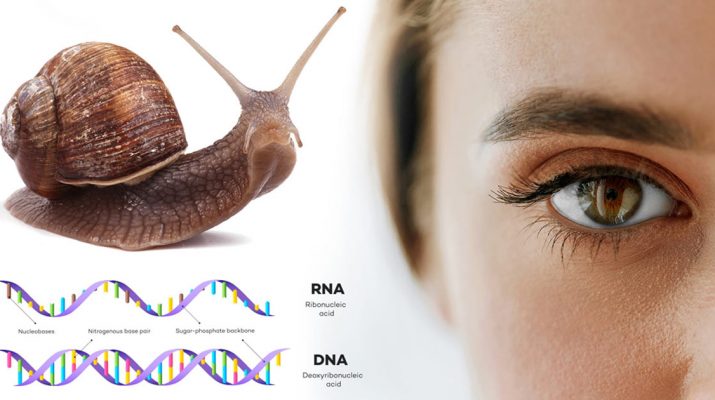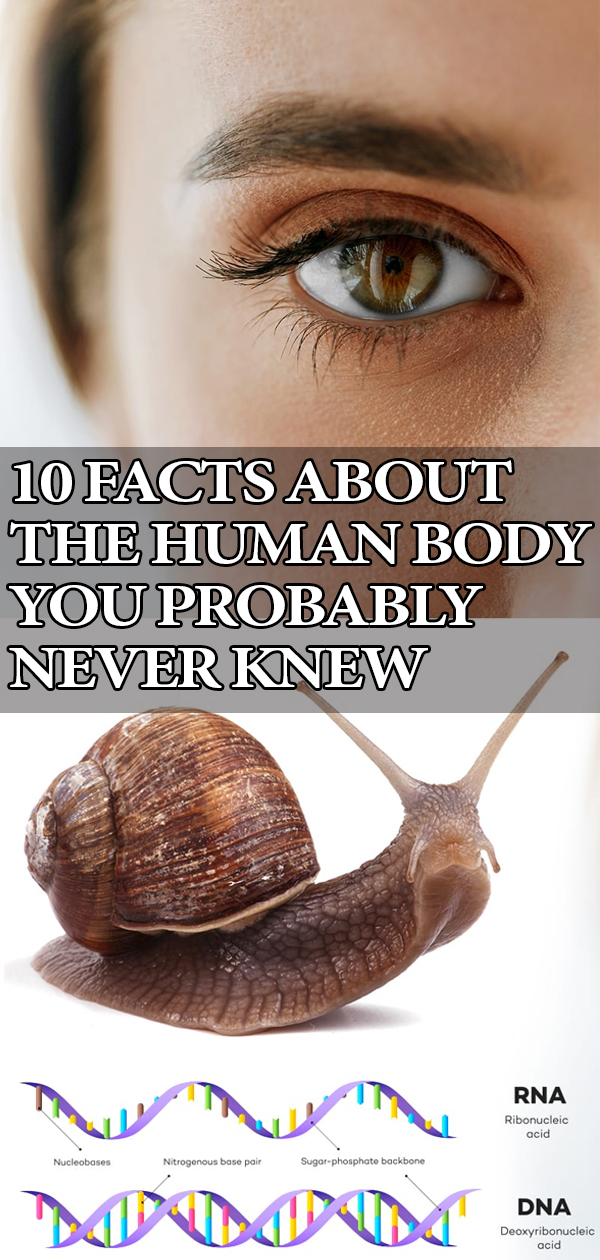The human body is a fascinating piece of work. It can be a positive medium and a wonderland, as that famous song goes, but it can also be a strange and disgusting mystery.
We have learned in school that the human body is composed of many cells that are vital to life and survival. We have also read in books that the human body’s physiology and anatomy have evolved.
Despite centuries of discoveries about human anatomy, scientists, academics, and experts are still learning more surprises and interesting details about what we’re actually made of. Here are some facts about the human body that you might be surprised to learn.
10 Facts About The Human Body
1. Sometimes, A Human Body Can Have An Extra Rib.
About 1 in 500 humans have an extra rib, also known as the cervical rib or neck rib. This is located just slightly above the first rib and it’s usually an abnormality that has been in a person’s body since birth.
However, most cervical ribs are not medically risky or relevant. Some people don’t even present any symptoms of the abnormality until it is discovered during a routine test. In some cases, however, the ribs may cause pressure on the body – known as the thoracic outlet syndrome.
- A person with this condition may sometimes feel neck pain, numbness, and swelling of the arms; the inability to move the arms and hands; and blood clots.
- Physiotherapy and a massage may relieve the symptoms caused by having an extra rib.
- Some people may also be advised to increase protection of their back and neck at work to limit the symptoms.
2. A Hiccup Is An Inherited Trait From Human’s Distant Ancestor: The Fish.
A study among respiratory experts from Canada, France, and Japan underscored that the hiccup is an inherited trait. Before humans evolved into what our bodies are today, the experts believed that our ancient ancestors from 350 million years ago used to swim in oceans to get to other places. They gulped air or water because they had gills and lungs. So, the hiccup was considered an evolutionary remnant after humans developed a more sophisticated lung and respiration motor system.
There are many ways to cure a hiccup but there’s no standard proof that one method can be effective over the other. At the very least, hiccups are just normally waited out and medical treatments are not necessary.
3. Heart Attacks Commonly Happen On Mondays.
As strange as this may sound, the chances of having a heart attack on a Monday increase about 20 percent in men and 15 percent in women. Swedish experts found out about this after doing a seven-year study on over 156,000 hospitals of patients admitted for heart attack.
Apparently, many adults are physically vulnerable during Mondays because of the stress triggers that may arise after a long and relaxing weekend. The experts, however, also said that since many people indulge in alcohol during the weekend, the heart can give out in the next few days.
- If you think you’re at a risk for heart attack, try to turn in early on a Sunday night so you don’t wake up rushing on a manic Monday.
- Also, avoid packing your Mondays with meetings and other commitments.
- Keep the day of your return to work more positive and relaxed so you can set a better pace for your activities for the rest of the week.
4. There’s A Benefit To Your Appendix.
More than 300,000 people in the United States have undergone an appendectomy or a surgical procedure to have the appendix removed. It is a common procedure at many hospitals because experts have said before that this organ doesn’t have actual benefits.
According to the evolutionist Charles Darwin, the human appendix is a remnant of the human body’s plant-eating ancestor. It used to be necessary for survival millions of years ago but as man evolved, its function also diminished.
But recent studies say that the appendix may actually still have a positive purpose for the human body. It’s where good bacteria pool so that it can live safely and longer in the gut. This, in turn, protects your body against diarrhea and other illnesses.
5. The Human Eye Has 140 Megapixels Resolution.
The most advanced digital cameras have 50 megapixels. The latest iPhone model boasts of just 12 megapixels. But the human eye apparently has 140 megapixels. It’s the most powerful “camera” to ever exist.
- But the eyes, unlike digital cameras, have a lot of flaws.
- You don’t usually see areas in high resolution with your eyes unless you focus on a small area to the center of your vision.
- You also have blind spots in your retina.
- So, the eyes won’t work the same as a camera lens that’s great at taking a snapshot.
Instead, the eyes use what they capture to store in your brain’s memory bank. The eyes collect clues from around you so that your brain can piece the details together to come up with the complete picture.
6. The Right Lung Is Shorter But Wider Than The Left Lung.
Elastic, spongy and soft, the lungs are structured like a tree inside the chest. It has a trunk and branches on both sides, but its right and left sides are not of equal sizes.
The right lung is actually shorter and wider than the left lung because it is squeezed next to the liver that is located under the ribcage. The left lung is not as wide as the right lung because it is next to the heart, which takes more space in the chest.
The right lung usually has three lobes of bronchus, while the left has only two. But when the bronchi branch out, regardless if it’s on the left or right, it can grow bigger than the main bronchus so you can easily breathe air.
7. The Human Dna Finds Commonalities With The Dna Of Slugs Or Even Bananas.
You’d be surprised to know that the human body is cousins with pretty much every creature on this planet. At least 98 percent of the human DNA closely resembles chimps. At least 70 percent of our DNA has similarities with slugs while 50 percent of our DNA can be comparable to bananas. Human DNA has also many things in common with bacteria. This is because millions of years ago, organisms in earth, including humans, came from one common plant ancestor.
Experts at Cambridge University have found gene similarities between plant, bacteria, and other microorganisms in a 2015 study. More than a decade ago, other experts also theorized just as much but their conclusions were dismissed by other academics and scientists.
With the latest findings, it seems scientists are now more open and accepting of this fact. Our human body contains DNA that may be present in creatures and living organisms that don’t resemble us at all. Experts have actually identified at least 128 foreign genes in a human body; more research has to be done to determine how the transfer and evolution happened and why some of these genes are no longer prominent in human development today.
8. The Fingernails Grow Faster Than The Toenails.
Ever notice that it takes your toenails at least a month to grow, while you have to cut your fingernails every week because they grow so fast? The reason fingernails grow faster is that they are more exposed to sunlight. The fingernails get more natural nutrients, such as vitamin D, compared to the toenails, which are usually covered in shoes or socks.
If you also observe, some of your nails seem to grow longer and faster than the others. If your dominant hand is the right, the fingernails on this hand are healthier because they’re always stimulated.
9. The Human Mind Tends To Have Weirder Dreams For Those With High Iq.
People with high IQ dream differently than average people. Scientists from the University of Rochester have discovered that intelligent people possess better visual perception so that they can be more discriminating when blocking out distractions while dreaming. Thus, they end up with more specific or vivid dreams. They also make use of their brain waves more efficiently so that their dreams are extraordinary and weird.
This isn’t to say, however, that you’re not intelligent if you don’t have crazy dreams or you don’t have positive memories of the dream you have. Most people forget the details of their dream as soon as they wake up. In other words, dreaming isn’t an accurate measure of intelligence or smartness. More than anything, it gives scientists better insights into people’s thought processes.
10. Your Feet Can “Taste” Garlic.
Garlic has a compound called allicin, which gives off its distinctive smell and flavor. However, the allicin will only be released if it’s crushed, cut, minced, or pounded, and not whole. The allicin can penetrate like water or oil so that when it’s rubbed on the skin or the soles of your feet, you’ll actually taste the garlic in your tongue.
- Try this experiment from the American Chemical Society: put crushed garlic inside a plastic bag and wear this bag on your feet for about an hour.
- Make sure to tie the plastic bag properly to contain the smell.
- After an hour, you’ll not just feel the garlic in your taste buds; you’ll also smell the garlic coming from your feet.
- This proves how, sometimes, people who love eating garlic have to shower or clean more than usual because the smell of garlic can definitely dissolve in their system that a faint odor may still linger in their body.
Final Thoughts On Facts About Human Body You Probably Never Knew
These are just a few strange facts about the human body. There are likely thousands more that will shock or stun you if you’ll read up on its mysteries. Some of these notions may still be myths waiting to be challenged or proven by experts in studies and experiments. Some may require more careful research.
However, it still doesn’t take away the fact that the human body is a miracle. Don’t you love and cherish your body more now that you know some of its origins and mysteries?


